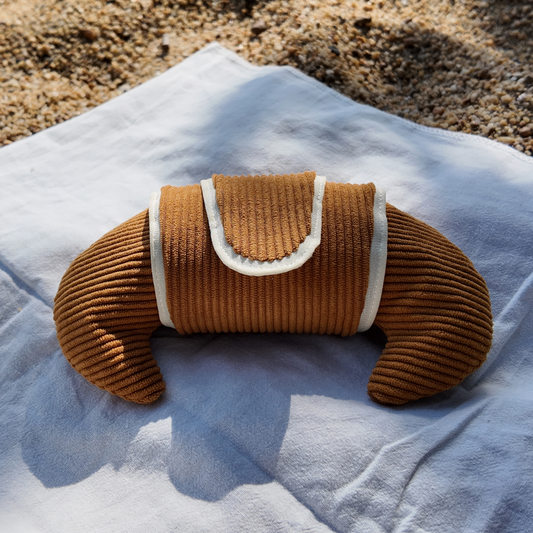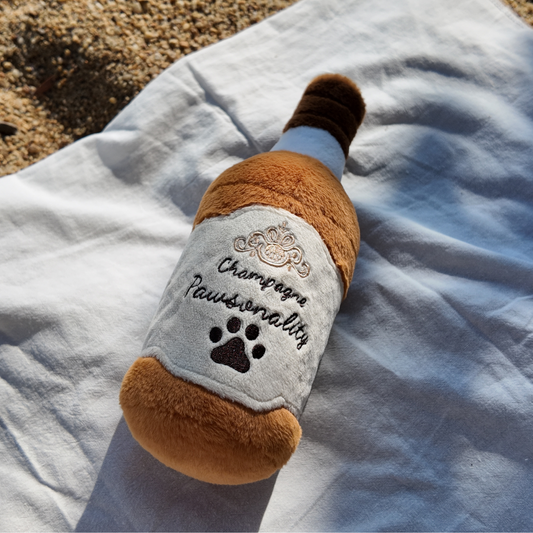
The Science of Why Your Dog Doesn't Just Want to Play - They Need to
Ever catch your dog staring into space, letting out a heavy sigh? Or come home to find a shoe that has mysteriously fallen victim to a "boredom-induced explosion"? We often label these moments as dogs just being dogs. But what if it's something more? What if it's a sign of an intelligent mind that's been clocked in all day with nothing to do?
This behavior reflects a dog's fundamental biological need. The truth is, for centuries, dogs were bred for specific jobs - herding, hunting, guarding. Today, most of our beloved companions are happily unemployed, leaving their brilliant minds with a cognitive surplus. At Pawsonality, we believe that understanding the science behind your dog's need for enrichment is the key to unlocking a happier, healthier life together.

Beyond the Walk: The "Working" Brain
A daily walk is fantastic for your dog's physical health, but it often does little to satisfy their most powerful organ: their brain. This is where the fascinating scientific principle of "contra-freeloading" comes into play.
In numerous studies, researchers have found that many animals, including dogs, will choose to work for their food even when an identical free meal is readily available. Why? Because the act of problem-solving and "earning" a reward is inherently satisfying. It triggers a release of dopamine, the neurotransmitter associated with pleasure and motivation.
When your dog solves a puzzle toy or successfully sniffs out a treat hidden in a snuffle mat, they get more than just a snack - they receive a powerful, confidence-boosting dopamine hit. They are fulfilling a primal need to seek, solve, and succeed. Working for rewards is a direct line to your dog's mental well-being.

The Chemistry of Play: How Toys Shape a Healthy Mind
Different types of play and toys tap into different aspects of your dog's cognitive and emotional health, creating a symphony of positive chemical reactions.
1) Nosework & Puzzle Toys: engaging your dog's incredible sense of smell is one of the most effective ways to reduce stress. The concentration required for sniffing and problem-solving has been shown to lower levels of cortisol, the body's primary stress hormone. A 15-minute nosework session can be more mentally tiring and calming for a dog than a 30-minute run.
2) Chewing: the repetitive, rhythmic action of chewing is a natural stress-reliever for dogs. It releases endorphins, creating a sense of calm and contentment. Providing a safe and appropriate outlet for this behavior is crucial for preventing anxiety-related destruction.
3) Interactive Play (Tug & Fetch): the power of playing with their human goes beyond simple fun. Shared activities like a gentle game of tug strengthen your social bond through the release of oxytocin - often called the "love hormone". This is the same hormone that bonds mothers and babies, and it's a key ingredient in building a deep, trusting relationship with your companion.

The Pawsonality Principle: Enrichment is Not One-Size-Fits-All
Understanding the science is the first step. The next is recognizing that, just like humans, every dog has a unique personality and set of needs. A border collie might crave a complex puzzle, while a beagle might live for a scent-based challenge. This is the core of our philosophy: to empower you to understand your dog's individual "Pawsonality" and provide the right tools for them to thrive.
When choosing enrichment tools, look for items that:
1) Engage Multiple Senses: toys that combine different textures, sounds (like crinkles and squeakers), and smells are far more engaging.
2) Offer Adjustable Difficulty: a great puzzle toy is one that can grow with your dog's skills, preventing them from getting bored or frustrated.
3) Promote Independent & Interactive Play: a healthy balance is key. Have tools that allow your dog to self-soothe and solve problems on their own, as well as toys that are designed to be used with you to build your bond.

Ultimately, enrichment is about honoring the brilliant, capable mind that sits behind those loving eyes. It's about providing them with a "job" that leaves them feeling fulfilled, confidence, and happily tired at the end of the day.




